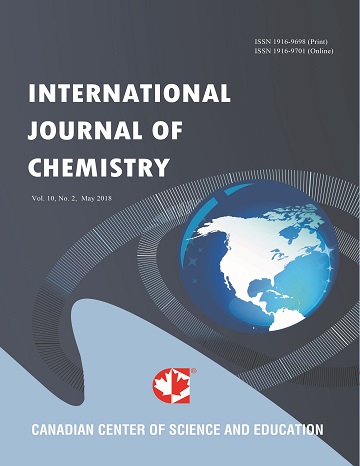Photocatalytic Degradation of 2,4-dichlorophenol in Irradiated Aqueous ZnO Suspension
- Umar Gaya
- Abdul Abdullah
- Zulkarnain Zainal
- Mohd Hussein
Abstract
This paper focuses on the destruction of aqueous 2,4-dichorophenol in ZnO suspension irradiated by low wattage UV
light at 299 K. The operating variables studied include initial 2,4-dichlorophenol concentration, photocatalyst doses and
pH. At 1.5 g l-1 feed concentration of ZnO and 50 mg l-1 initial 2,4-dichlorophenol level, a complete degradation was
achieved in 180 min. The decomposition kinetics with respect to 2,4-dichlorophenol approximates pseudo zero-order
with rate constant peaking at 0.38 mg l-1 min-1. High performance liquid chromatography (HPLC) and gas
chromatography-mass spectrometry (GC-MS) detected benzoquinone, 2-chlorohydroquinone, 4-chlorophenol,
3,5-dichlorocatechol, hydroquinone, 4-hydroxybenzaldehyde and phenol during the ZnO-assisted photodegradation of
2,4-dichlorophenol among which some pathway products are disclosed for the first time. The reaction mechanism
accounting for the degradation pathway intermediates is proposed. Inorganic anion additives such as S2O8
2-, SO4
2-, Cland
HPO4
2- manifested inhibition against 2,4-dichlorophenol removal.
- Full Text:
 PDF
PDF
- DOI:10.5539/ijc.v2n1p180
Index
Contact
- Albert JohnEditorial Assistant
- ijc@ccsenet.org
